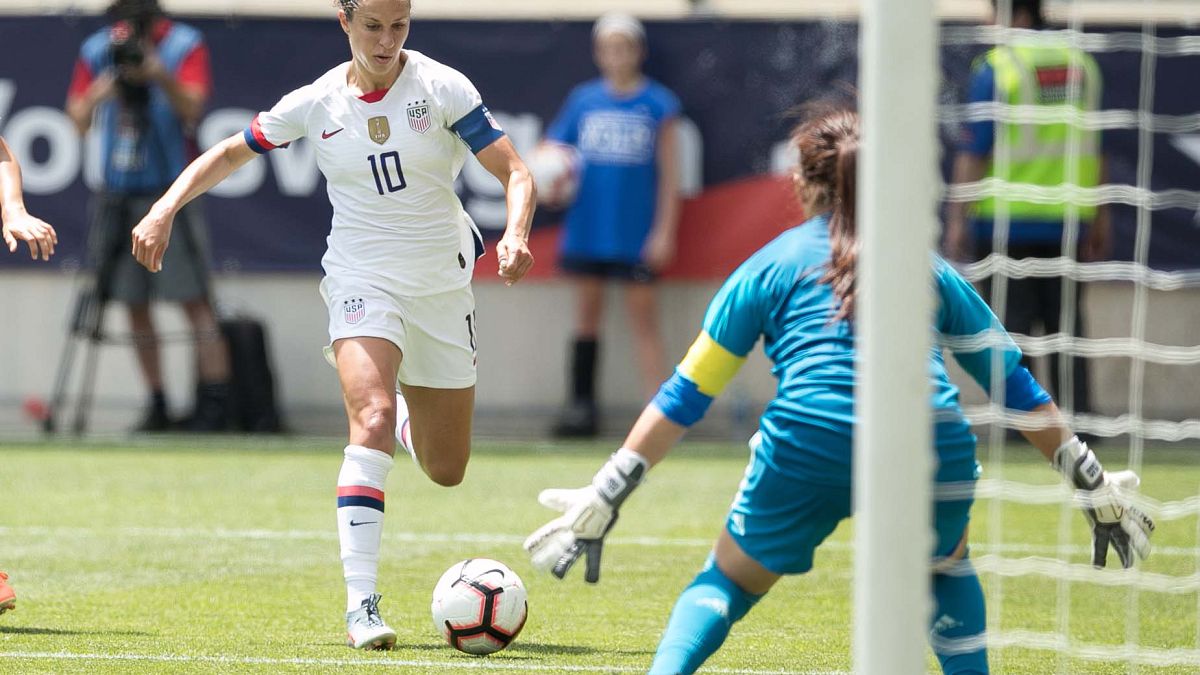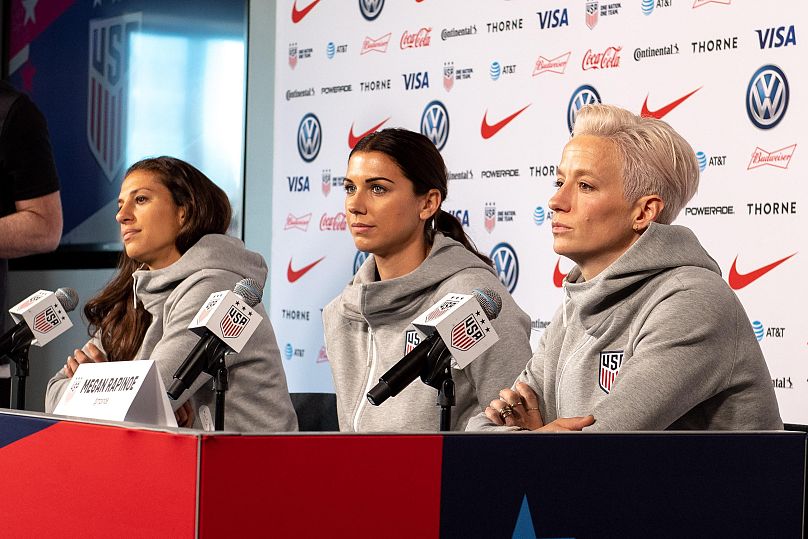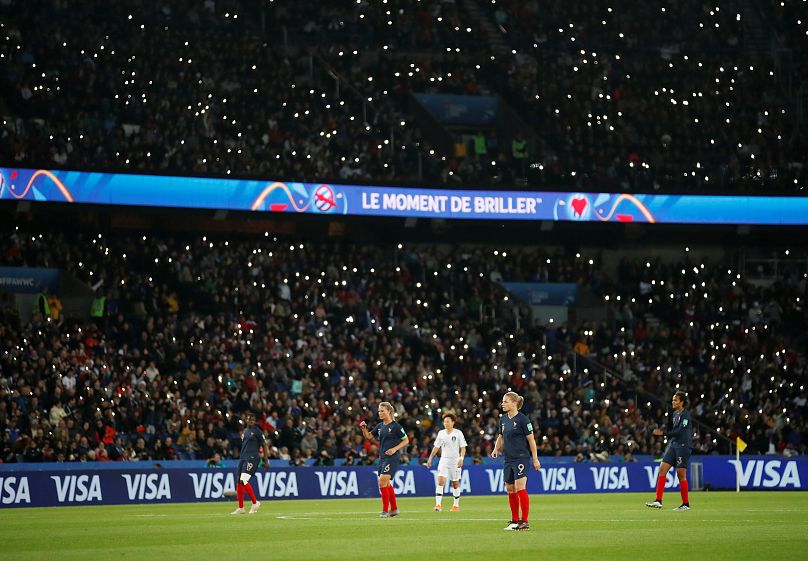Players are more vocal than ever on the need for equal pay.
The eighth Women’s World Cup has sold 720,000 tickets thus far and is expected to reach ever more viewers than previous tournaments, helped by star names converging to host nation France.
But while viewership is improving, there remains a disparity in pay between female footballers and their male counterparts at last year’s men’s world cup.
And this year, players have been more vocal than ever before.
Sweden’s Nilla Fischer, who will return to her native homeland after playing at club level with German champions VfL Wolfsburg, pulls no punches when assessing the problem.
“What they (men) maybe make in an hour, I make in a year,” she told Reuters.
Some voice their concerns individually while others have made a collective riposte to national governing bodies.
World Cup reigning champions the United States filed a lawsuit against the US Soccer Federation in March with all 28 squad members of the 2015 triumph listed as plaintiffs in a Los Angeles lawsuit.
High-profile players in the group of 28, including Alex Morgan, Carli Lloyd and Megan Rapinoe, have said they are always paid less than the US men’s team that failed to qualify for the 2018 World Cup in Russia.
“We believe that fighting for gender equality in sports is a part of that responsibility. As players, we deserved to be paid equally for our work, regardless of our gender,” Morgan said.
On Friday, women players in Australia achieved the same base pay as men in a one-year extension as part of a collective bargaining agreement.
Players in Australia’s W-League will have their annual minimum remuneration hiked 33% to A$16,344 (€10,085), with their base hourly rate matching the country's top men’s league, Football Federation Australia and the players union said.
More players in the women’s game are being drawn to the riches of Europe in particular clubs like Arsenal, Barcelona and Lyon.
Olympique Lyonnais' women's team, which has stormed to victory for a historic four consecutive years in the Champions League, is also home to the first ever female Ballon D’Or winner, Ada Hegerberg.
She won't be on her home pitch during this world cup, however, as she's decided not to play in the tournament in protest over the treatment of women's football.
Scratch the surface beyond the heavyweights and the gulf becomes vastly clearer.
According to a 2018 Sporting Intelligence Salary Survey, the English Premier League’s male footballers are paid more than 100 times what their counterparts in the women’s game earn.
Male footballers in the Premier League earn £3 million (€3.3m) a year on average.
The Global Football Employment Report’s survey of 3,600 professional women’s players across the world found an average wage of $600 (€529) a month and half of the players surveyed saying they didn’t receive any payment at all.
Others believe that talking money without having success beforehand is the wrong strategy.
England and Barcelona player Toni Duggan believes that while the US women should be paid the same as the men’s team because of their success, England’s women players should avoid taking a similar route.
“Should we be doing it? No. Because we don’t bring in the money that the men do – we’re not as successful as them (the USA) yet. They bring in a lot more money than us commercially and are more successful,” she told the Guardian newspaper.
“When people ask me: ‘Should I earn the same money as the men?’ No, I don’t believe I should because they’re on a bigger scale than me, they have more fans, are more popular. I believe girls should be better paid but not the same as the men.”
She has also called for a sea-change in the “quality” of crowds as opposed to simply bringing more eyeballs to the women’s game. For Duggan, focusing on the finer details could help make the women’s game in England a more attractive prospect for marketing, and in turn a better corporate investment to take the women’s game.
“In England, I think we get about 30,000 for maybe an FA Cup final and there are lots of kids on the seats, which is nice don’t get me wrong, but it’s a calm atmosphere.”
“In contrast, the game at the Metropolitano (Barcelona vs Atlético Madrid) felt like a “proper game”. “The fans really wanted to be there for their team – the Atlético supporters were giving us stick, they were booing us, there were flares. I’m not encouraging all of it – there are some things in the men’s game we don’t want – but I’m just saying it felt like a proper atmosphere.”
Major broadcasters in France and the UK are showing all of this year’s Women’s World Cup games free-to-air, which could bring in exposure and ultimately more sponsorship and money in players’ pockets down the line.
At this moment in time, not many can attract lucrative endorsements with base salaries such as Ada Hegerberg.
But when the world’s best player makes a stand on the issue of pay by forfeiting a chance to play on the biggest stage, heads at the highest level are turning.
“When we stand for equality, we are all feminists,” Hegerberg said.
"The more people give attention to equal pay, the easier it gets. I think we should look at ourselves and what we can do to develop the sport to increase the level and obviously that's to perform, to increase the level. That's our biggest job.”
“But it's not always about money, either. It's about attitude and respect. We're talking about young girls getting the same opportunity as boys - giving them the same opportunity to dream.”


